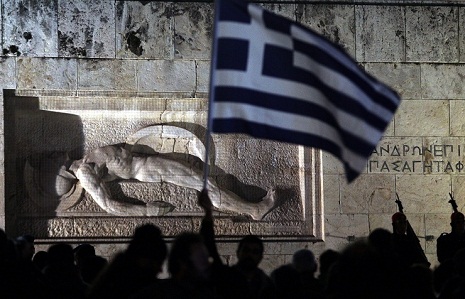The second international program of financial assistance to Greece will also expire tonight. Athens will for the first time since 2010 find itself one on one with international financial markets without IMF discounted loans and euro zone which for the last five years supported Greece’s financial system. The total amount of loans Greece now has to repay stands at 240 billion euros. The country’s state debt already exceeds 315 billion euros, or 175% of GDP.
Greece’s future relations with international creditors will be decided at a referendum on July 5. The country’s exit from the euro zone may lead to serious shake-up of financial stability of the European Union. European Commission President Jean-Claude Juncker made the final proposal to Greece, but Prime Minister Alexis Tsipras rejected it. Athens say creditors base their proposals on catastrophic austerity measures than led to decline by 25% in Greece’s GDP over the last six years.
Fitch rating agency lowered credit ratings of Greece’s four leading banks - National Bank of Greece (NBG), Piraeus Bank (Piraeus), Eurobank Ergasias (Eurobank) and Alpha Bank (Alpha) - to RD (restricted default) from CCC and CC respectively. Standard & Poor’s has also lowered Greece’s sovereign credit rating from CCC to CCC-with a negative outlook.
Greece may seek a court injunction against the EU institutions to block the country’s expulsion from the euro zone and stop suffocation of the Greek banking system by the European Central Bank, Greek Finance Minister Yanis Varoufakis said on Monday.
"The Greek government will make use of all out legal rights," the Daily Telegraph cited Varoufakis as saying. "We are taking advice and will certainly consider an injunction at the European Court of Justice. The EU treaties make no provision for euro exit and we refuse to accept it. Our membership is not negotiable," the finance minister said.
More about:
















































